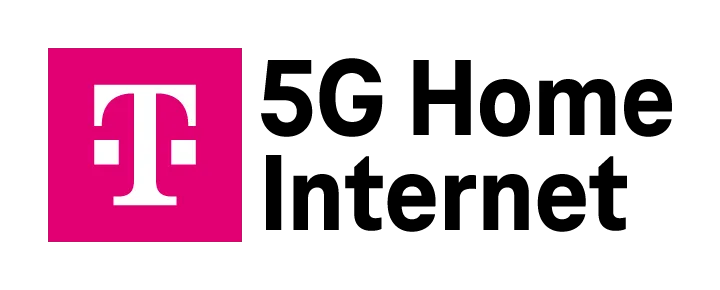Best internet providers for streaming near me
What is the best type of internet for streaming? Experts say fiber
Fiber-optic internet transmits data as pulses of light over hair-thin glass strands, and it can reach blazing download speeds up to and beyond 1,000Mbps (1Gbps—gigabyte per second). Having fiber connections available directly to homes and businesses is a relatively new service that covers only about 35% of the U.S. currently.
Fiber internet is also capable of equal (also called symmetrical) upload speeds. With other types of internet service, upload numbers are about 10% of download rates. Uploading your hamster-grooming tutorial to YouTube takes only minutes with fiber, as opposed to hours with cable or DSL.
As far as we’re concerned, fiber-optic internet is king. It’s fast and consistent, and unlike other delivery methods, it was designed for the internet, not retrofitted. It might be a little more expensive, but for seamless streaming, we say it’s worth it—if you can get it.
Our top picks for fiber ISPs are Google Fiber—the best of the best internet service if it’s available in or near your area—along with Verizon Fios, AT&T, and Quantum Fiber. Any of these providers will be top-notch for your streaming needs, with Verizon Fios taking home our prize for the fastest of them all.
Cable internet is next-best for smooth streaming
Cable internet service was introduced in the ’90s, using existing cable TV coaxial lines to deliver faster internet than DSL and dial-up, which used older copper telephone lines. Thanks to modem upgrades in the 2010s, some cable internet services can achieve fiber-like download speeds up to 1,000Mbps (but upload speeds are still usually a fraction of download).
The biggest selling point of cable internet is that it’s available nearly everywhere, covering close to 90% of the country. The downside of cable internet is that it can slow when your neighbors on the service are surfing at the same time, creating a data logjam.
Cable’s wide availability and high download speeds make it a great internet service choice for the streaming fans in your life. Our top-ranked cable ISPs are Xfinity for its flexibility and high reliability scores, along with Astound Broadband for its fast speeds.
Fixed wireless internet is a solid streaming choice
Multiple wireless carriers have launched fixed wireless services that use their 5G networks to provide internet service. The best of the bunch is T-Mobile 5G Home Internet—our pick for the ISP with the best value.
5G internet has less consistent download speeds than fiber and cable internet since the speeds depend on an area’s 5G availability. This lack of consistency could be a drawback for someone who wants the fastest speeds available. We suggest taking advantage of T-Mobile’s 15-day trial period to test out the speeds in your area.
Regardless, we still think T-Mobile 5G Home Internet is the best deal around and a solid streaming choice.
DSL internet is a streaming last resort
Digital subscriber line (DSL) delivers internet service over standard telephone lines, which are even more prevalent than cable connections. Even some of the most remote regions of the U.S. have access to DSL internet.
In most cases, DSL internet can reach a download speed of around 100Mbps tops—and that speed drops depending on the distance between you and the central connection point. DSL signals degrade over longer ranges, meaning some rural areas are lucky to get 5Mbps of service. Ouch.
If you must get DSL, CenturyLink’s Simply Unlimited Internet and Kinetic’s Internet DSL plans would be our picks. Both start at a reasonable $39.99–$55 per month and offer unlimited data, which we can’t complain about. Beware the data throttling and slow download speeds, though.
Satellite internet is not ideal for streaming
Satellite internet works mostly the same as satellite TV: The signal comes from a satellite in space, and a dish attached to the outside of your home or business receives the data.
Unlike satellite TV, which can deliver an HD picture indistinguishable from cable, satellite internet is limited in its signal capabilities. It’s also expensive and comes with low data caps.
The two main satellite ISPs are Hughesnet and Viasat, with both ISPs offering up to 100Mbps download speeds. The up-and-coming provider Starlink received high marks in our customer satisfaction survey, offering speeds up to 400Mbps. Read our guide to the best satellite internet providers to learn more.
If you’re in an area that doesn’t even get DSL service, satellite’s an acceptable last resort, but that’s the only instance in which we’d recommend satellite internet. Seriously—keep looking.
Best internet for streaming FAQ
What internet provider is best for streaming TV?
The best internet provider for streaming TV would be a fiber provider like Google Fiber. With speedy equal download and upload speeds, low latency, and high reliability, you can expect crisp, buffer-free streams from a fiber ISP.
What internet speed is needed for live streaming?
We recommend 25Mbps as the lowest possible internet speed for consistent live streaming on one or two devices. 100bps and up is ideal for multiple streams on multiple devices. At 200Mbps, you’ll have more than enough bandwidth for multiple streaming TV viewers, and you’ll still have enough remaining bandwidth for gaming, YouTube, or general web browsing.
Why you should trust us
To find the best internet providers, we spent thousands of hours analyzing each ISP’s plans based on factors including price, reliability, and features like free equipment.
We used feedback from our annual internet customer satisfaction survey to find out how current customers felt about their ISPs. Not only that, but we did hands-on testing of our own home internet to round out our ratings of select providers.
For more information on our methodology, check out our How We Rank page.
Disclaimer:
* Price per month with Auto Pay & without select 5G mobile plans. Consumer data usage is subject to the usage restrictions set forth in Verizon’s terms of service; visit: https://www.verizon.com/support/customer-agreement/ for more information about 5G Home Internet or https://www.verizon.com/about/terms-conditions/verizon-customer-agreement for Fios internet.


